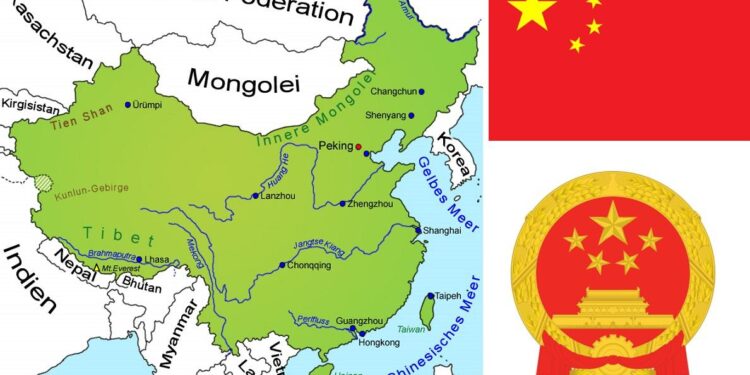China’s Innovative Cocoa Investment: Transforming Ivory Coast’s Agricultural Landscape
In a groundbreaking move within the global cocoa sector, China has agreed to finance the construction of Ivory Coast’s largest cocoa processing facility through an unconventional currency—cocoa beans. This pioneering arrangement, highlighted by Global Construction Review, not only emphasizes cocoa’s growing strategic importance but also signals China’s expanding footprint in Africa’s agricultural industries. This collaboration between the world’s top cocoa producer and one of its major consumers could redefine trade relations, investment flows, and sustainability efforts across the region. As global demand for cocoa intensifies—projected to grow by over 3% annually through 2030 according to recent market analyses—this deal may pave the way for novel financing models in emerging economies’ critical sectors like agriculture.
Revolutionizing Trade: China’s Bean-Based Financing Model in Ivory Coast
Chinese investors have introduced a distinctive approach that intertwines infrastructure development with agricultural production growth in Ivory Coast. Instead of conventional monetary payments, funding for building this massive processing plant is structured so that local farmers repay investments using their harvested cocoa beans. This barter-like system guarantees Chinese manufacturers a reliable supply of premium raw materials while simultaneously motivating farmers to increase output due to assured demand.
This innovative framework fosters mutual dependency between foreign capital and local agriculture with two main pillars:
- Secured Supply Chains: By accepting payment in beans, Chinese stakeholders lock in steady access to quality inputs essential for their operations.
- Empowering Local Farmers: The guaranteed purchase mechanism provides economic stability for producers and incentivizes sustainable farming methods that benefit communities long-term.
This model exemplifies how international partnerships can evolve beyond transactional exchanges toward collaborative growth strategies that embed local actors deeply into value chains rather than marginalizing them.
The Ripple Effects on Local Agriculture and Economy
The use of agricultural commodities as currency raises important questions about its broader economic consequences on farming communities within Ivory Coast. While this bean-for-infrastructure exchange unlocks fresh capital inflows potentially enhancing production capacity and creating employment during construction phases (estimated at over 5,000 jobs), it also introduces complexities worth considering.
- Boosted Agricultural Investment: Enhanced infrastructure can improve yields through better processing capabilities and storage facilities.
- Market Volatility Risks: Increased demand tied directly to repayment obligations might cause price fluctuations affecting traditional market dynamics.
- Sustainable Employment Creation: Beyond temporary construction jobs, expanded facilities could generate ongoing roles within processing plants and ancillary services.
| Dimension | Advantages | Challenges |
|---|---|---|
| Economic Growth | Sustained investment influx; job creation during project phases; | Poorly managed barter systems risk destabilizing cash flow; |
| Agricultural Development | Agricultural modernization potential; improved supply chain efficiency; | Possible neglect of diversified cash crops; vulnerability to commodity price swings; |
| Community Welfare | Economic upliftment via stable income streams; | Dangers of long-term dependency on single-commodity transactions; |
Cultivating Sustainable Partnerships: Best Practices for Future Projects
The increasing scrutiny surrounding large-scale infrastructure projects demands approaches centered on sustainability—not just environmentally but socially as well. For initiatives like this one between China and Ivory Coast to thrive sustainably over time, they must prioritize inclusive engagement with local populations alongside transparent governance mechanisms throughout all stages—from planning through execution and maintenance.
A few guiding principles emerge as essential components for fostering resilient collaborations:
- Aligned Objectives: Ensure project goals resonate with national development agendas while addressing community needs effectively.
- Equitable Joint Ventures: Structure partnerships so risks are shared fairly among investors and beneficiaries alike.
- Capacity Enhancement Programs: Invest heavily in training locals not only technically but also managerial skills required post-project completion.
- Environmental Responsibility Measures: Integrate green technologies such as solar-powered machinery or waste recycling systems minimizing ecological footprints.
A Forward-Looking Perspective on Global Cocoa Trade Dynamics
This unprecedented bean-based financing agreement marks a significant milestone reflecting evolving patterns within international trade frameworks—especially those involving developing nations rich in natural resources yet constrained by financial limitations. With global chocolate consumption expected to reach nearly seven million metric tons annually by 2027 (according to industry forecasts), securing efficient processing capabilities becomes paramount both economically and strategically for producing countries like Ivory Coast seeking greater value addition domestically rather than exporting raw materials alone.
The partnership underscores China’s strategic intent not merely as an investor but as an active participant shaping Africa’s agro-industrial future—a trend mirrored across other sectors such as cotton textiles or coffee production where similar innovative arrangements are emerging worldwide (e.g., Brazil’s soybean-for-infrastructure swaps). Observers will be keenly watching how these developments influence regional employment rates, farmer livelihoods, environmental stewardship practices—and ultimately whether they catalyze more equitable global commodity chains benefiting all stakeholders involved.
Conclusion: A New Chapter Unfolds in Cocoa Industry Collaboration
The alliance forged between China and Ivory Coast around constructing the continent’s largest cocoa plant epitomizes shifting paradigms where innovation meets tradition—and finance intersects agriculture uniquely via commodity-backed agreements. As this initiative unfolds amid rising worldwide demand coupled with calls for sustainable development models across Africa’s agrarian economies—the outcomes here may well serve as templates inspiring future cross-border ventures blending economic pragmatism with social responsibility.















